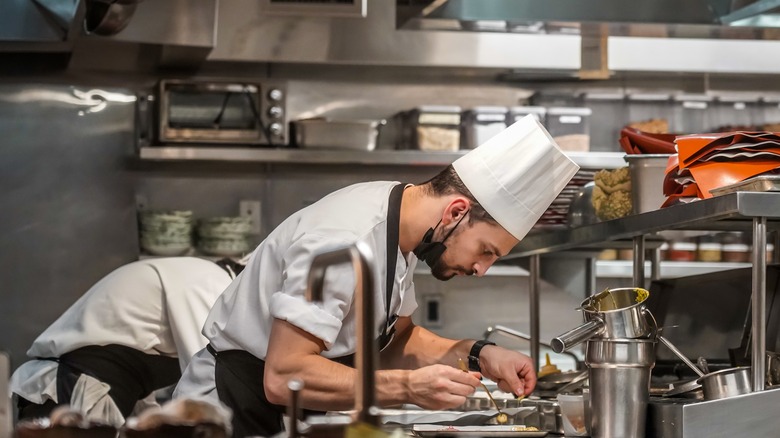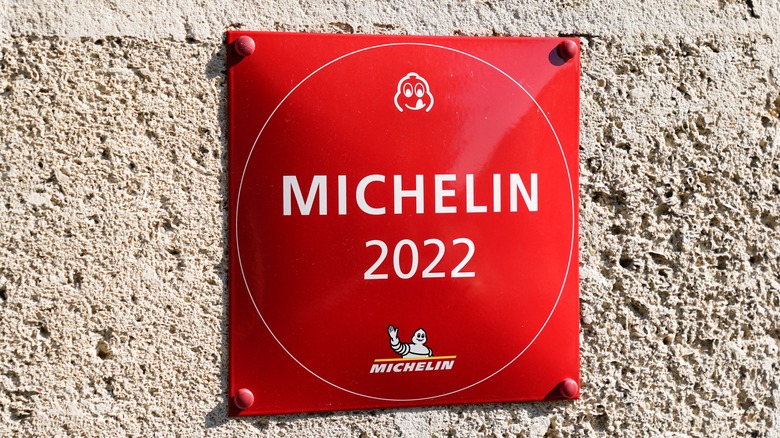Why There's No Such Thing As A Michelin-Star Chef
Michelin stars are one of those prestigious awards that every chef aspires to. You've probably heard celebrity chefs such as Gordon Ramsay talk about them. You've probably seen tv shows and movies where those stars are the main character's driving purpose in life. They appear to be one of the highest aims and a mark of achievement for every chef. Despite this, the Michelin star carries a misconception that might change the way you think of the award.
You may have heard that Gordon Ramsay recently broke down because his New York restaurant The London had its two stars taken away. According to Daily Mail, he described the experience as 'like losing a girlfriend. You want her back.'
This intense reaction is actually understandable. If a restaurant wants to achieve any Michelin stars, the head chef has to create the dishes that earn them. However, the chefs themselves do not earn the Michelin star.
The history of the Michelin star
In one particular movie, Burnt, the Head Chef (Bradley Cooper) and Maître d' (Daniel Brühl) describe to their employees that they should know the Michelin reviewers by certain traits: one arrives and sits at the bar first, one will order a tasting menu, and they will place a fork on the floor to see how much attention to detail the staff is paying. While some of these specific details of how to recognize your Michelin man may be true, the reality is that the reviewers only really care about the food.
The history of the Michelin star is about as straightforward as one can expect. According to Poached Jobs, Michelin began as a travel guide in 1904, and yes, it is the same company with the cheerful Michelin tire man logo. The idea behind the guide was to get people to travel in their cars more and use up more tires. The restaurant guide was added in the 1920s, and the three-star award standards were added in the 1930s. It is currently held as a top standard that many chefs strive to achieve.
How restaurants receive Michelin stars
There are five assessment criteria for Michelin stars, and these include the quality of ingredients, food preparation skills, flavor profiles, consistency, and value for money. That fork being picked up from the floor doesn't appear to come into it!
While the restaurant may be awarded the stars for the food, it's ultimately the head chef who creates and oversees the food that goes out to the customers, and therefore, it is the chef who earns the stars for the restaurant. So does that mean that a restaurant will lose stars if a chef moves on to another location? Surprisingly, the answer is no. The restaurant retains its star status, but it will receive another assessment. Therefore, it's up to the new chef to hold on to their Michelin star status, which could be a challenging task.
It is difficult to establish yourself as a notable chef, and perhaps nothing is more complicated than being awarded a Michelin star. However, it's important to remember that individual chefs cannot receive these prestigious awards. Instead, they are given to the restaurants that they cook at.


